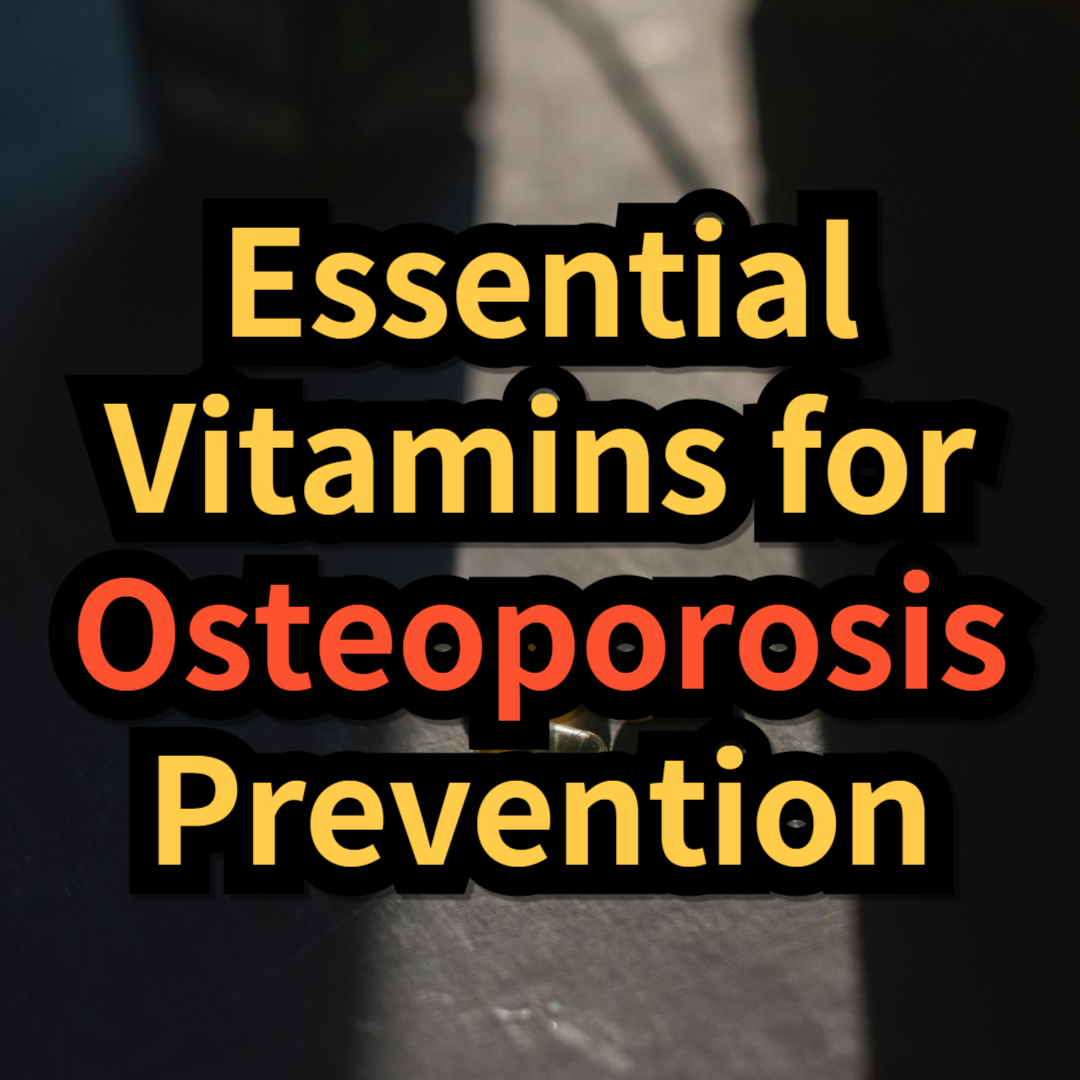Introduction
Osteoporosis is a condition characterized by weakened bones, making them more susceptible to fractures. It is often referred to as a “silent disease” because bone loss occurs without symptoms until a fracture happens. This blog post will delve into the stages of osteoporosis, recommend five essential supplements for prevention, and provide tips on lifestyle changes to maintain bone health.
Stages of Osteoporosis
Early Stage
In the early stage of osteoporosis, there are typically no noticeable symptoms. Bone density begins to decrease, but this is not usually detected without a bone density test. This stage is often referred to as osteopenia, a precursor to osteoporosis. Regular screenings are crucial for early detection.
Middle Stage
As osteoporosis progresses to the middle stage, bones become weaker, and the risk of fractures increases. Symptoms may include back pain, caused by a fractured or collapsed vertebra, and a noticeable loss of height. At this stage, bone density tests will show significant bone loss.
Late Stage
In the late stage of osteoporosis, bones are extremely fragile, and fractures can occur with minimal stress. Common symptoms include severe back pain, loss of height, and a stooped posture. Fractures, especially in the hip and spine, are common and can lead to significant disability.
Recommended Supplements for Osteoporosis Prevention
1. Calcium
Ingredients: Calcium carbonate or calcium citrate
Benefits: Essential for bone formation and maintenance
Price: $10-$20 for a month’s supply
Where to Buy: Pharmacies, health food stores, online retailers
Details: Calcium is the primary mineral found in bones. Adequate intake is crucial for maintaining bone density and preventing osteoporosis. It is recommended to consume 1,000-1,200 mg per day, depending on age and gender.
2. Vitamin D
Ingredients: Cholecalciferol (Vitamin D3)
Benefits: Enhances calcium absorption and bone health
Price: $10-$15 for a month’s supply
Where to Buy: Pharmacies, health food stores, online retailers
Details: Vitamin D is vital for calcium absorption in the gut. Without sufficient vitamin D, bones can become thin and brittle. The recommended daily intake is 600-800 IU.
3. Magnesium
Ingredients: Magnesium oxide, magnesium citrate
Benefits: Supports bone structure and calcium metabolism
Price: $15-$25 for a month’s supply
Where to Buy: Pharmacies, health food stores, online retailers
Details: Magnesium is involved in bone formation and influences the activities of osteoblasts and osteoclasts, cells responsible for bone turnover.
4. Vitamin K2
Ingredients: Menaquinone-7 (MK-7)
Benefits: Regulates calcium deposition and bone mineralization
Price: $20-$30 for a month’s supply
Where to Buy: Pharmacies, health food stores, online retailers
Details: Vitamin K2 helps direct calcium to the bones and away from the arteries, reducing the risk of arterial calcification and promoting bone health.
5. Boron
Ingredients: Boron citrate
Benefits: Enhances the body’s ability to use calcium and magnesium
Price: $10-$15 for a month’s supply
Where to Buy: Pharmacies, health food stores, online retailers
Details: Boron supports bone health by aiding the metabolism of minerals involved in bone development, such as calcium, magnesium, and vitamin D.
Lifestyle Changes for Osteoporosis Prevention
Diet
A balanced diet rich in calcium and vitamin D is essential for bone health. Foods such as dairy products, leafy green vegetables, and fortified foods are excellent sources of calcium. Fatty fish, egg yolks, and fortified milk provide vitamin D. Avoid excessive alcohol and caffeine, as they can interfere with calcium absorption.
Exercise
Regular weight-bearing and muscle-strengthening exercises are crucial for maintaining bone density. Activities such as walking, jogging, and resistance training help stimulate bone formation and slow bone loss. Aim for at least 30 minutes of exercise most days of the week.
Healthy Habits
Avoid smoking and limit alcohol consumption, as both can contribute to bone loss. Maintaining a healthy weight is also important, as being underweight increases the risk of bone fractures. Ensure you get enough protein in your diet, as it is vital for bone health.
Conclusion
Preventing osteoporosis involves a combination of proper nutrition, regular exercise, and healthy lifestyle choices. By incorporating the recommended supplements and making positive changes to your diet and habits, you can significantly reduce your risk of developing osteoporosis and maintain strong, healthy bones throughout your life.
Top 5 Supplements for Rheumatoid Arthritis Relie (soomarket.com)
